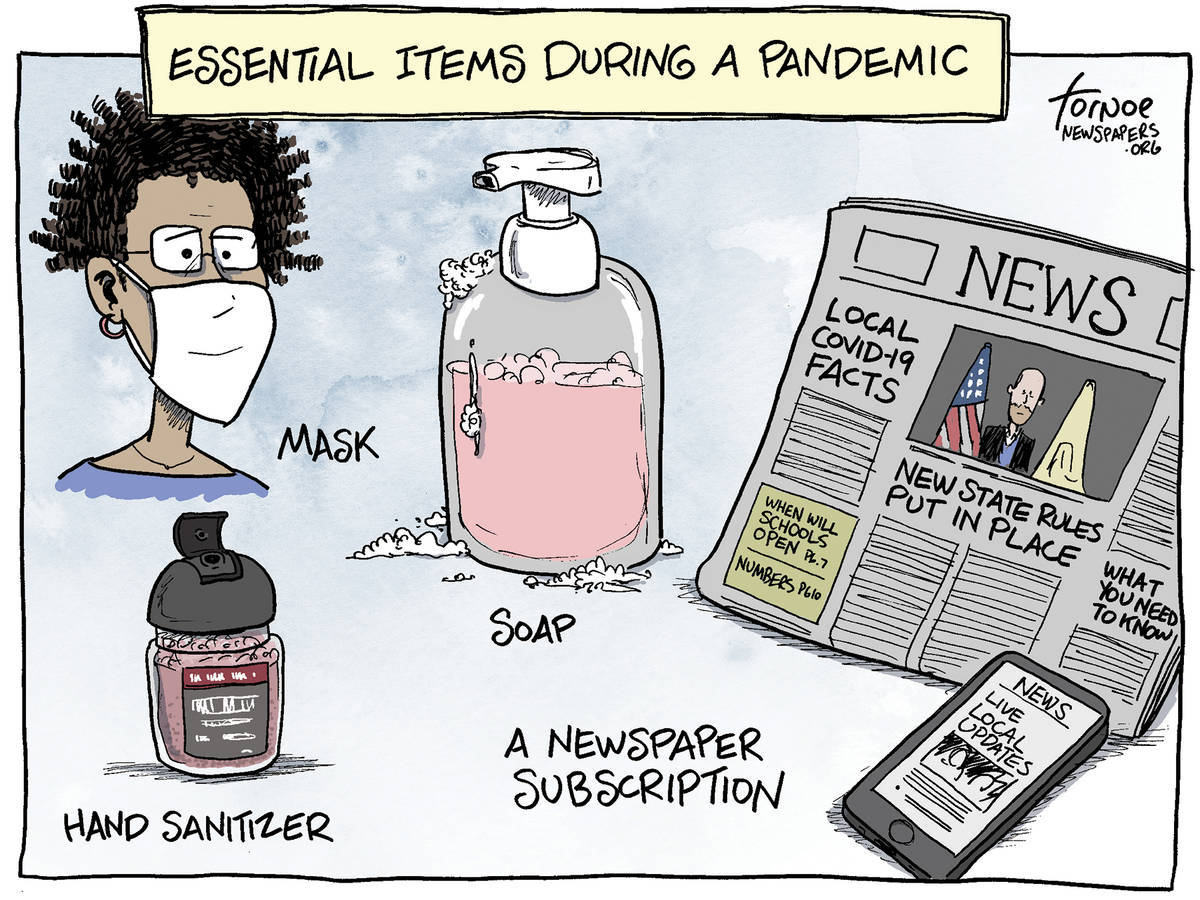News organizations need your help
The newspaper or news website you are reading is in trouble. Like many other businesses, the COVID-19 crisis has eliminated most of its revenue but not its expenses, delivering a body blow to a business model that was already under pressure. But it continues to publish, providing your community with timely, accurate information about the crisis.
In fact, this news organization’s work is crucial to the life of the community. Don’t take it from me. Like the executive-branch leaders in over 30 other states, Gov. Steve Sisolak has declared news media in Nevada an essential business that must be allowed to continue to publish during the pandemic.
The problem is it takes money to run a business and there just isn’t enough of it coming in to sustain the operations of all but the largest newspapers and news websites. Many publishers report a revenue decline of 70 percent to 80 percent.
Along with the owners and managers, the journalists and designers and salespeople who make our news organizations run have taken a hit. Furloughs, salary reductions and layoffs have washed over the industry. Earlier this month, the New York Times estimated 28,000 news media employees in the U.S. have suffered one of those fates; since then, many more have been added to that toll of misery.
This can’t continue without massive numbers of newspaper and news websites eventually closing up shop.
They need your help, and they need it now. If you believe your community must have real news organizations to watchdog the government and cover the local news, here are two immediate steps you can take:
1. Subscribe. If you really want to be helpful, subscribe to a local newspaper. Reading a newspaper is a more relaxing experience than staring at a screen, and it’s a far better way to absorb information without distraction. If you’re looking for an opportunity to slow your life down, reading a newspaper may be one way to start.
If that’s a step too far, subscribe to the newspaper’s website instead. If your local paper doesn’t charge for access to its website, make a donation as an alternative. And while you’re at it, if there’s a local news website that is doing good work in your community, consider donating to it as well.
2. Call your congressional representatives. A bipartisan group of legislators recently urged Congress and the White House to consider stimulus relief for local journalism and media. “Without this support, communities across the country risk losing one of their key sources of accurate information about what citizens need to know and do in response to the COVID-19 pandemic,” said one of the letters circulating on Capitol Hill.
What local news media need is legislation directing current U.S. government advertising campaigns to local news and media outlets, and providing the relevant federal agencies with an additional $5 billion to $10 billion for direct funding for advertising that would be evenly distributed to local media in communities throughout the U.S.
To protect their independence, newspapers have historically shied away from asking for government assistance. But if we don’t get help soon there won’t be any local newspapers left whose independence needs protecting. Moreover, the truth is the federal government has supported newspapers through discounted postage rates since 1792.
Newspapers and other local news media were facing huge challenges even before the coronavirus struck, due in part to public policy decisions made in Washington, D.C. A lack of enforcement of antitrust laws by the federal government has allowed the Google/Facebook duopoly to abuse their platform monopolies and hoover up an almost 60 percent share of the digital advertising market, leaving crumbs for every other media business trying to make money on the web. The federal government can help to redress its inaction by helping local media in the next stimulus bill.
Your subscription dollars and a few calls to your congressional representatives would throw us a lifeline while helping your community maintain the independent news coverage it will need to thrive once this crisis passes. Please consider it.
Richard Karpel is the executive director of the Nevada Press Association.






